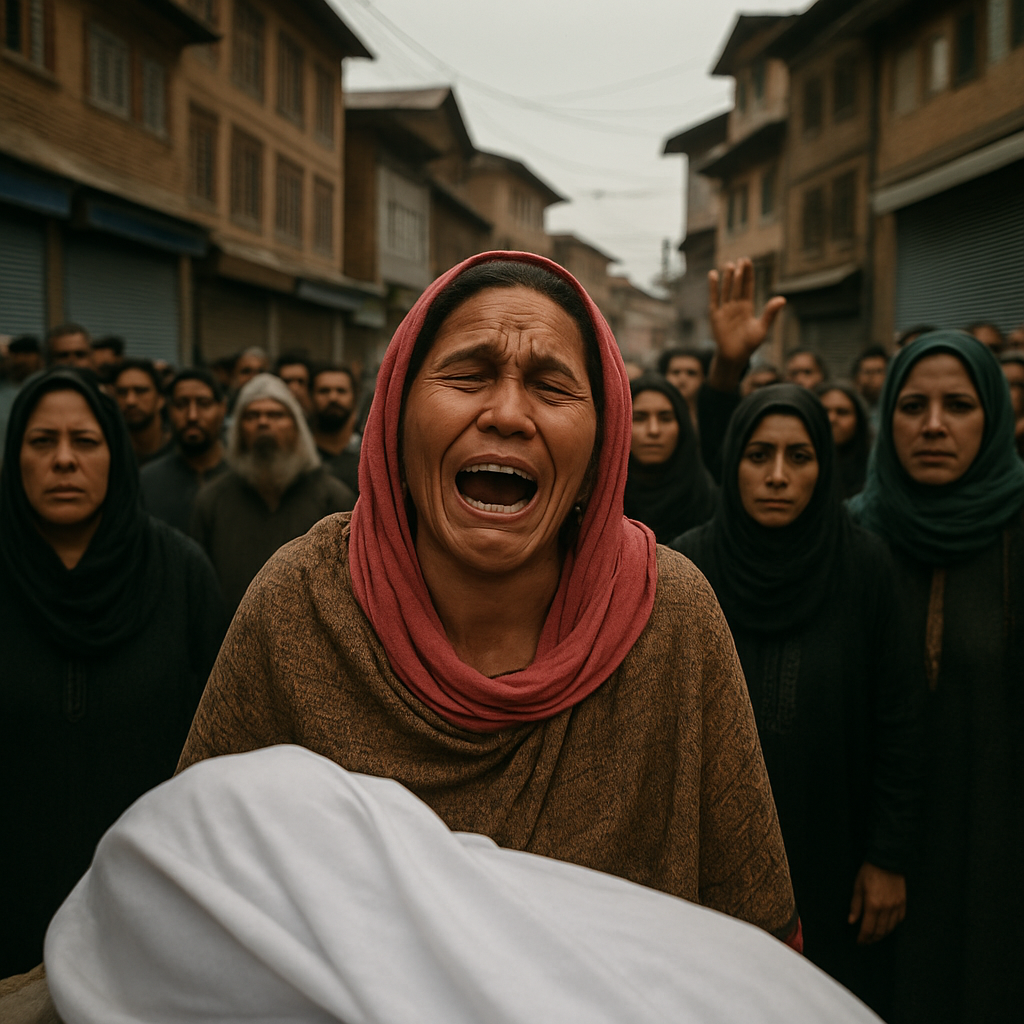The death of a nomadic woman in Srinagar’s Nishat area has ignited widespread grief and outrage across the Kashmir Valley. The woman, originally from Reasi and residing in Nishat, was reportedly assaulted near Water Works Road. She was taken to a hospital but was declared dead on arrival. Her death, under harrowing circumstances, has shaken public consciousness and revealed the vulnerabilities that women continue to face. Following the incident, the police arrested four individuals suspected of involvement in the crime and began an investigation. While this quick action has been acknowledged, it has not stemmed the tide of anger and sorrow flowing throughout the Valley. Residents of the Nishat area on Monday shut down local markets the day after the incident. Their silent protest sent a message about the depth of collective pain and the demand for accountability. Public response has been immediate and strong. Statements of condemnation came not only from local citizens but from political leaders across party lines. The Muttahida Majlis-e-Ulema also strongly condemned the sexual assault and death of the tribal woman, calling it a reflection of the moral decline in society. The organisation attributed the incident to rising obscenity, substance abuse, and erosion of ethical values. Expressions of sorrow, grief, and demands for justice have filled the airwaves and social media feeds. The violence inflicted on this woman is not being viewed as an isolated crime but as part of a larger pattern of cruelty faced by vulnerable sections of society. The fact that the victim was a tribal woman only deepens the sense of injustice. Her death did not just leave behind a grieving family—it left behind questions that pierce the moral conscience of the region. How safe are women, especially those belonging to marginalized communities? What mechanisms exist to protect them from harm? The incident throws into sharp focus not just the violence itself but the broader social failure that allows such crimes to occur. Substance abuse was reportedly involved, pointing toward deeper issues of law enforcement, community awareness, and systemic neglect. The political reactions have also pointed to the necessity of reform. Demands for fast-track trials and stricter punishment are growing louder. Yet justice, in its truest sense, goes beyond punishing the guilty. It involves acknowledging the humanity of the victim, recognizing the systemic failures that contributed to the tragedy, and taking concrete steps to prevent such acts in the future. The woman was not just a victim of a violent assault—she was also a reflection of a society’s collective indifference to the safety and dignity of its most defenseless members. As her story continues to stir protests and public discussion, there is hope that her death will not fade into silence as others have. The grief must lead to real change—in laws, in institutions, in collective behavior, and in everyday choices that shape how society treats its most vulnerable. Her death must matter, for she was a human being whose life held worth and deserved protection. What her story calls for is not sympathy, but accountability.
Nishat Horror
